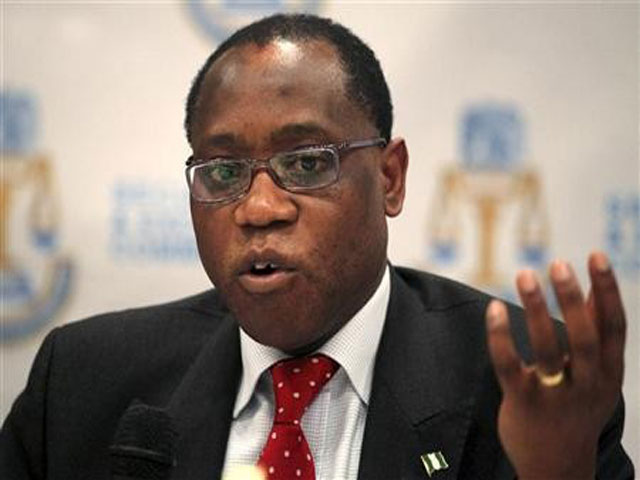Why petroleum subsidy must go, by Jonathan
Despite the public outcry against the planned removal of fuel subsidy, President Goodluck Jonathan yesterday insisted on its withdrawal. Funds saved from the removal will stimulate private sector investments to bridge infrastructure gap and create incentives for investment in refineries and the petroleum industry, the President said.
He spoke at the opening of a Presidential Retreat with the Private Sector on Economic Development and Job Creation at the State House Banquet Hall, Abuja.
Explaining that the plan to remove petroleum subsidy was still at the proposal stage, the President said if it scaled through, the resources hitherto used as subsidy on the importation of petroleum products, would be invested in tangible infrastructure and provision of social safety nets to cushion the impact of the reforms.
According to him, discontinuing with the subsidy remained the only responsible way of harnessing revenue for capital stock formation, among others.
Jonathan said: “ There are proposals to phase out petroleum subsidies in a deliberate and responsible way that will harness revenues for capital stock formation and leverage on private sector investments in public-private partnerships (PPPs).”
His administration, he said, was also working with the National Assembly to pass the Petroleum Industry Bill (PIB) into law, adding that the government was intensifying its engagement with the lawmakers and other key stakeholders to agree on critical reforms to the fiscal regime for the oil and gas sector.
The latest move to withdraw the subsidy has attracted widespread condemnation from several quarters, especially the organised labour. Those opposed to the proposal argued that the policy would push up the prices of goods and make life unbearable for Nigerians.
Specifically, the Nigerian Labour Congress (NLC) and the Trade Union Congress (TUC) cautioned government against the withdrawal, threatening to call its members out to resist the policy.
On Wednesday, Senators mandated its committees to unmask the beneficiaries of the N1.2 trillion subsidy.
Senate President David Mark lamented that the subsidy was not reaching its targeted beneficiaries – the ordinary Nigerians.
Unveiling plans to overhaul the external trade and tariff policies, Jonathan said it was important to promote domestic industries by protecting them from unfair trade practices.
The country, he said, must also adopt a more responsive tariff policy which recognises the limitations of an over-extensive prohibition list. To ensure responsible fiscal policies, Jonathan said the Federal Government would strive to keep fiscal deficit below three per cent of the Gross Domestic Product (GDP).
There will be a deliberate and systemic reduction of domestic borrowing by government. Jonathan said the government was accelerating the implementation of key trade, tariff and customs reforms mostly to improve the domestic investment environment to achieve this, eh said.
He said: “Accordingly, in line with the government’s commitment to ensure good and responsible fiscal policies, we are committed to maintaining the fiscal deficit at below three per cent of Gross Domestic Product (GDP) during the life of this administration.
“In this regard, we need to arrive at more effective trade and tariff policies that facilitate the creation of local businesses and jobs.
“We are determined to accelerate the implementation of the 48-hour ports clearance reforms, improve the efficiency of the Nigeria Customs Service and other related agencies, and reduce the incentives for smuggling.”
Speaking of the formidable challenges for achieving these developmental objectives, the President added for achieving some of the fiscal, monetary and other risks that the country must mitigate were becoming more apparent.
Jonathan said: “As evidenced by our strong economic growth in recent times, our nation has been resilient to the global economic downturn. However, we face formidable challenges ahead in charting a course towards the achievement of our developmental objectives outlined in this administration’s economic transformation blueprint.
Explaining the importance of the retreat, Jonathan said: “Our historical over-reliance on oil revenue has hampered the growth of the non-oil sectors of our economy.
“I am happy to inform you that this administration is committed to reversing this trend by implementing targeted interventions to boost non-oil and real sector productivity.
“For instance, under the Agricultural Transformation Action Plan, efforts are underway to improve the productivity, yield and competiveness of key agricultural commodities with significant export potential.
“By harnessing the value chains in the production of cocoa, groundnut, oil palm and rice, as well as for cotton, cassava and sorghum, we will conserve billions of dollars in foreign exchange that would otherwise have been spent on imports.
‘We will equally reverse the unsustainable food importation process, which has fuelled domestic inflation. And in effect, improve our national food security position; and unleash the sector’s potentials for employment generation and wealth creation.”
Nation








